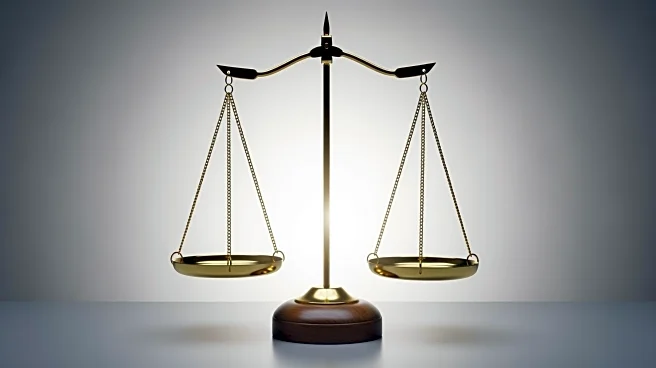What's Happening?
New York Attorney General Letitia James' grandnieces have been charged with a total of eight felonies and three misdemeanors over the past five years. Despite the severity of these charges, they have consistently
been downgraded or dismissed. The charges include lying about a felony record to purchase a gun and grand larceny. The legal proceedings have raised questions about prosecutorial discretion, as charges were often reduced to misdemeanors, allowing the individuals to avoid prison time. The properties owned by James have also come under federal scrutiny, with allegations of mortgage fraud potentially leading to significant legal consequences for James herself.
Why It's Important?
The situation highlights concerns about the legal system's handling of repeat offenders and the influence of familial connections in legal outcomes. The downgrading of charges against James' relatives may suggest leniency that could undermine public trust in the justice system. Additionally, the federal investigation into James' properties could have broader implications for her political career and the integrity of public office holders. The case underscores the importance of transparency and accountability in legal proceedings, especially when involving public figures.
What's Next?
The ongoing federal investigation into Letitia James' properties may lead to further legal challenges for her, potentially impacting her role as Attorney General. The scrutiny of her relatives' legal cases may prompt calls for reform in prosecutorial practices, particularly regarding the treatment of repeat offenders. Public and political reactions could influence future legal and political developments, including potential changes in leadership or policy adjustments within the justice system.
Beyond the Headlines
The ethical implications of the case raise questions about the balance between mercy and justice in legal proceedings. The potential influence of familial connections on legal outcomes may prompt discussions on the need for impartiality and fairness in the justice system. The case also highlights the cultural and societal expectations of accountability for public figures and their families.









